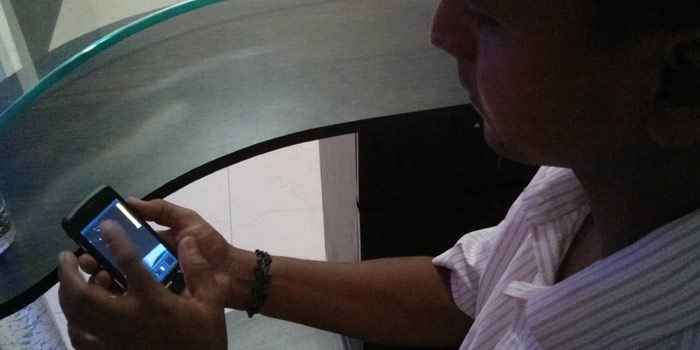Thieves have little love to spare for smartphones nowadays,
especially Apple iPhone devices, according to new data on the
effectiveness of kill switches. The technology which is being hailed for
making a real impact against the number of handsets being stolen is
actually a sort of software lock.
Described as a kill switch, it can be remotely activated by the owner of a stolen or misplaced smartphone. Upon being flicked on, the kill switch wipes the device in question free of user data. But that’s not the feature which is causing an increasing number of thieves to avoid lifting handsets.

The kill switch also ‘bricks’ the stolen gadget so that it cannot be reprogrammed or reused. Its zero resale value in the smartphone market means it’s only good for scrapping. PCWorld reports that in San Francisco, the theft of handsets dropped by an encouraging 27 percent between 2013 and 2014.
A similar trend of fewer cases of stolen phones being reported have been observed in New York and London too. Law enforcement officers who’ve been demanding the inclusion of a kill switch function in such devices in spite of facing opposition from the cellular industry, ought to be thanked for the positive change.
Google’s Android Lollipop comes with the software lock, while Samsung’s Galaxy S5 also arrived with it last year. Apple’s kill switch goes by the name Activation Lock and was launched along with the iPhone in 2013. In San Francisco, robberies of iPhone units reduced by 40 percent between 2013 and 2014.
During the same period, New York saw 16 percent and 25 percent drops in overall smartphone and iPhone thefts, respectively. The law in California now insists that phones produced after July 1, 2015, should all include the security feature, or simply forget about finding their way into the state.
You may call it a small ripple, but when more and more manufacturers decide to include a kill switch in their smartphones, the effects will spread worldwide. We know what you’re thinking; but you can count your blessings until some mischief maker discovers a way around it.
Described as a kill switch, it can be remotely activated by the owner of a stolen or misplaced smartphone. Upon being flicked on, the kill switch wipes the device in question free of user data. But that’s not the feature which is causing an increasing number of thieves to avoid lifting handsets.

The kill switch also ‘bricks’ the stolen gadget so that it cannot be reprogrammed or reused. Its zero resale value in the smartphone market means it’s only good for scrapping. PCWorld reports that in San Francisco, the theft of handsets dropped by an encouraging 27 percent between 2013 and 2014.
A similar trend of fewer cases of stolen phones being reported have been observed in New York and London too. Law enforcement officers who’ve been demanding the inclusion of a kill switch function in such devices in spite of facing opposition from the cellular industry, ought to be thanked for the positive change.
Google’s Android Lollipop comes with the software lock, while Samsung’s Galaxy S5 also arrived with it last year. Apple’s kill switch goes by the name Activation Lock and was launched along with the iPhone in 2013. In San Francisco, robberies of iPhone units reduced by 40 percent between 2013 and 2014.
During the same period, New York saw 16 percent and 25 percent drops in overall smartphone and iPhone thefts, respectively. The law in California now insists that phones produced after July 1, 2015, should all include the security feature, or simply forget about finding their way into the state.
You may call it a small ripple, but when more and more manufacturers decide to include a kill switch in their smartphones, the effects will spread worldwide. We know what you’re thinking; but you can count your blessings until some mischief maker discovers a way around it.
No comments:
Post a Comment